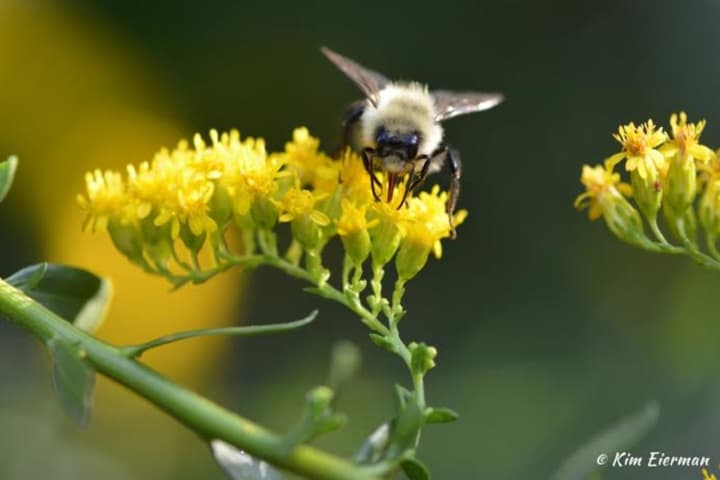Plant Late-Season Nectar Sources for Pollinators
Fall is a critical time for many pollinators as they prepare for winter. Unfortunately, late-season nectar and pollen resources are usually slim in most landscapes. Give pollinators a helping hand by planting fall-blooming native plants in your yard, including asters and goldenrods. Choose plants that are native to the area and appropriate for your site, for the biggest ecological punch. The Lady Bird Johnson Wildflower Center native plant database is a good place to research plants.
Offer Migrating Birds the Fuel They Need
Many of the songbirds we treasure in our landscapes are neo-tropical migrants that head south in the fall and return to our yards in the spring. The long journey south requires that these birds bulk up on nutritious natural foods in the fall. Our yards are often devoid of the healthy food they need. Not all plants offer the same nutrition - the fruit of non-native Korean Dogwood is sugary and too large for most birds. In contrast, the fruit of native Flowering Dogwood offers migrating birds substantial nutrition to power them on their way. Choose native trees, shrubs and perennials that provide the right food at the right time for wildlife.
Give Overwintering Beneficial Insects a Winter Home
The vast majority of insects in our landscapes are either beneficial or benign. Many insects overwinter as adults or immatures. They may hide out in leaf litter, in the pithy stems of dead perennials, or in the debris of your perennial beds. Give beneficial insects and native pollinators a winter home by leaving perennials standing through winter, cutting them back in the spring. If you are planting native perennials and grasses, many of these will also be food sources for some overwintering birds.
Take Advantage of Nature’s Mulch and Compost
Resist the urge to blow or rake your leaves this fall. Those leaves are nature’s mulch and compost. As leaves decay they release nutrients critical for healthy soil. And, healthy soil is essential for healthy plants. Decaying leaves help retain moisture in the soil – especially important in times of drought. Leaf litter suppresses weeds and provides a winter home for beneficial insects – those insects will be a food source for hungry birds in the spring. Leave leaves alone, except on the lawn, where they can be mulched and left in place or applied to planting beds as mulch.
Reduce Your Lawn and Replace With Native Plants
Lawns require a great deal of maintenance and resources but provide very little ecologically. Instead of re-seeding and fertilizing your lawn this fall, reduce your lawn to an area that you really use. Expand your planting beds or create a native meadowscape that will attract pollinators next year.
Need some tips for fall planting? Attend the Native Plant Weekend at Rosedale Nurseries in Hawthorne on Sept. 12 and 13. Free workshops and personal shoppers will be on hand.
Kim Eierman, a resident of Bronxville, is an environmental horticulturist and Founder of EcoBeneficial. When she is not speaking, writing, or consulting about ecological landscapes, she teaches at the New York Botanical Garden, Brooklyn Botanic Garden, The Native Plant Center and Rutgers Home Gardeners School.
Click here to follow Daily Voice Putnam and receive free news updates.


